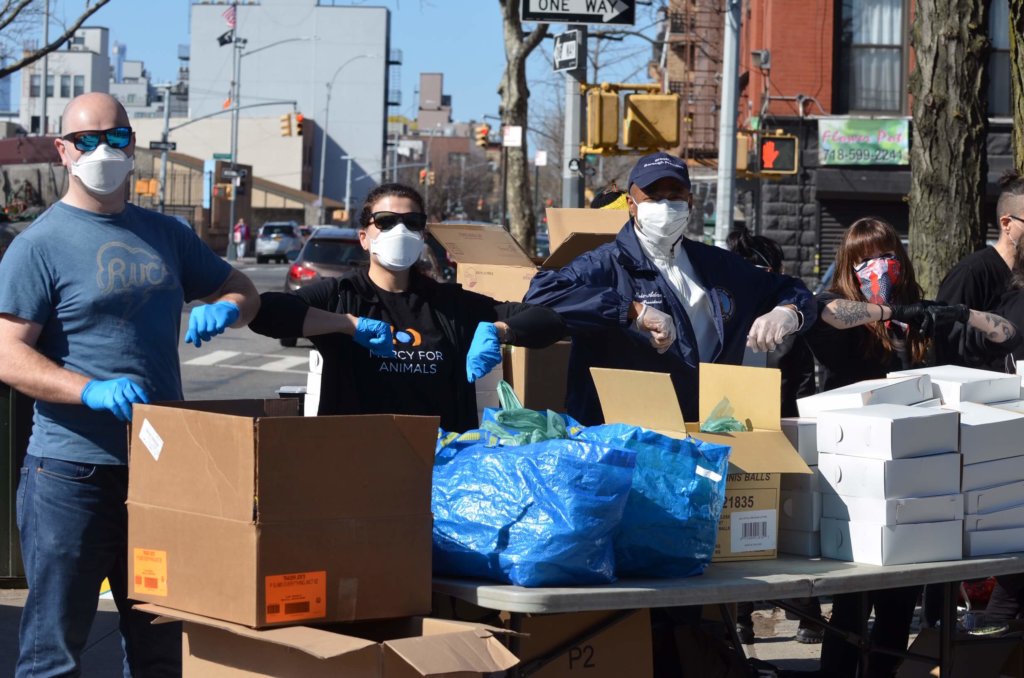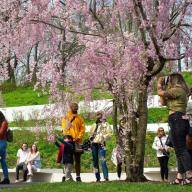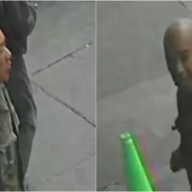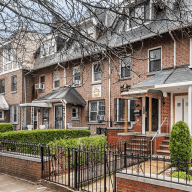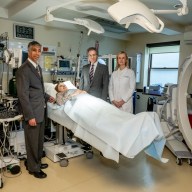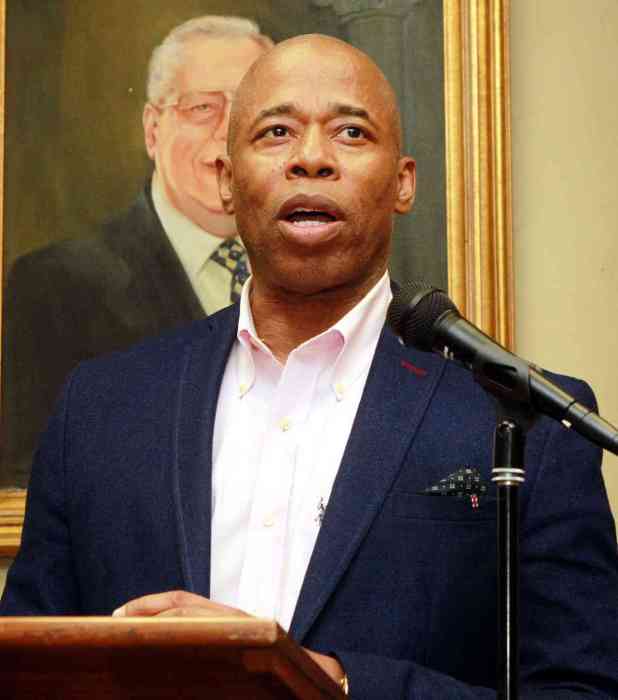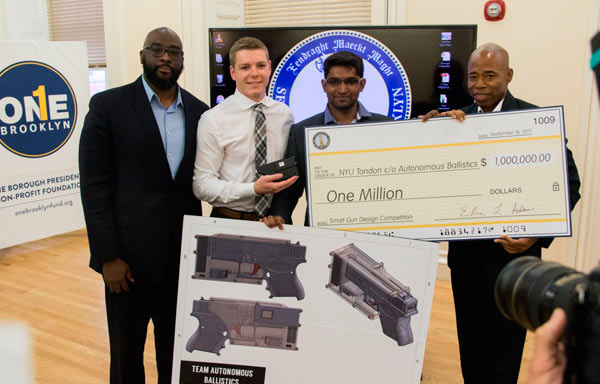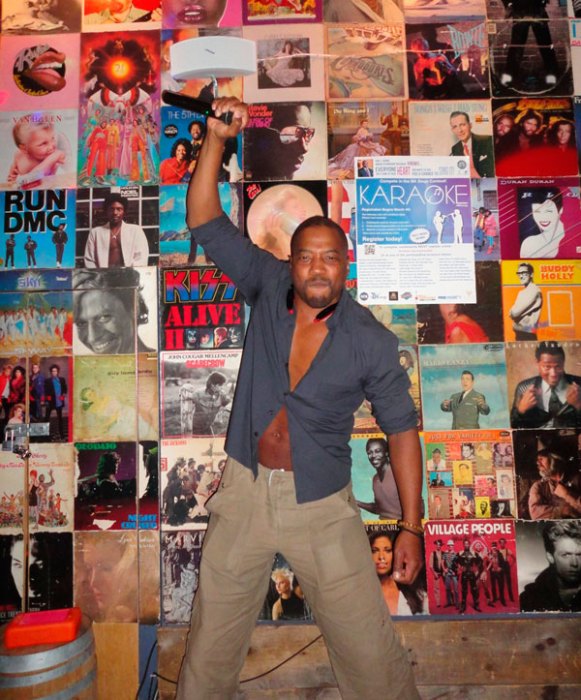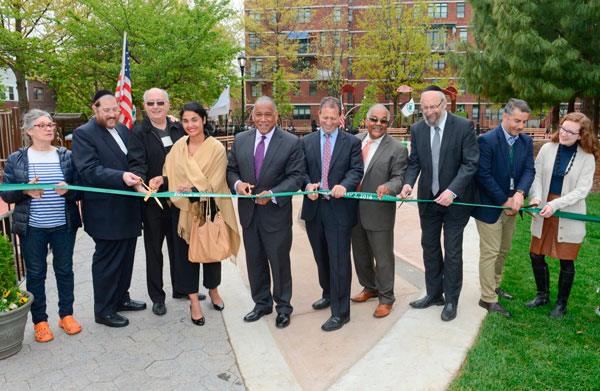In the weeks following 9-11, Brooklyn Borough President Eric Adams — a retired NYPD captain — slept at the 88th Police Precinct on Classon Avenue.
“I wanted to be able to spring into action,” said Adams, who was in his 17th year as a cop.
For the last forty or so days, the Beep said he’s called Brooklyn Borough Hall home. From inside the Joralemon Street building’s hallowed halls, Adams has set up shop with staffers who want to be on the front lines of the novel coronavirus outbreak, helped organize relief efforts, and even live-streamed his favorite at-home workouts and meditation methods.
Since Gov. Andrew Cuomo called for a citywide shelter-in-place to stem the spread of the outbreak in mid-March, Adams said, he’s seen COVID-19 — the respiratory illness caused by the novel coronavirus — inflict a terror like that of 9-11.
“After 9-11, you saw everyday people in this borough who were afraid. America had never really been attacked on its soil,” Adams said. “This virus has attacked us at our core. It’s not an act of terrorism, but people are in terror.”
On the other side of the coin, the virus has also inspired similar acts of kindness throughout the city, he said. Restaurants have been feeding the city’s front line workers and those who are food insecure. Residents have pooled funds to provide personal protective equipment for those in need. A celebration of healthcare heroes is brought to life as cheers, and the banging of pots and pans, ring out across the city nightly.
“Many of us who were cops or firefighters or first responders, we will tell you that 9-11 took something out of us, but it also put something in us,” he said. “It put in us that we can get through it if we remain committed, and if we have each other’s backs.”
The pandemic has similarly placed an importance on the work of first responders and front line workers — including police officers, firefighters, emergency medical technicians, healthcare professionals, group home staffers, supermarket employees, and all other essential workers.
The virus has also earmarked the significance of local lawmakers — those with the power to make change during a crisis — to be on the front lines, in whatever capacity that they can, Adams said.
“Just like 9-11, this virus has shown me the importance of being among the people and leading them and letting them know that they are going to be alright,” the borough president told Brooklyn Paper.
On April 20, Gov. Cuomo announced that state officials would supply the city’s public housing residents with 10,000 gallons of hand sanitizers and 500,000 cloth masks — something, Adams said, his office had been doing for NYCHA since the beginning of the outbreak.
“You have to fight this on the ground where the virus is. That’s what we, what my small team and I, have been doing — and we started at NYCHA,” he told Brooklyn Paper. “People said we were crazy. They criticized us. But, when we door-knocked, we found out these people were in even more need than we originally thought — they weren’t getting food deliveries. They needed more help.”
The same thing happened when his team wanted to supply transit workers with personal protective equipment, Adams recounted.
“I knew we had to fight this virus on two fronts — intervention for those who had it and prevention to prevent people from getting it,” said Adams, who earlier this month joined other Brooklyn lawmakers in blaming a maze of red tape for the lack of access for those workers.
“Where we went wrong, if you look at it on the city and state and federal level, you did not hear any proven plan outside of sheltering in place and keeping six feet apart — that was the only prevention plan you saw,” Adams said. “But, because I was on the ground every day, I saw nurses wearing the same mask for a week, soiled with saliva. I saw people going to the supermarket, carrying on with their jobs but not wearing any personal protective equipment. I saw people struggling, and the only way that you would know that is if you were on the ground.”
Since the outbreak began, Adams — with the help of what he called “sister-cities,” like China, who he has fostered relationships with — has been able to supply almost 80,000 masks to city hospitals and front line workers, as well as those everyday Brooklynites living in NYCHA complexes, and transit employees.
He’s also had some larger scale victories. Adams has called on the state to waive costs for setting up a telemedicine appointment, to place a moratorium on residential and commercial evictions, to move the tax filing deadline and to allow social adult daycares to have teleconferencing — all of which have been implemented.
Late last month, he asked the city to provide one video conferencing platform for community boards and agency work, so as to avoid confusion — and the city implemented WebEx. He’s asked for more outreach to communities of color, greater access to COVID-19 testing and pre-screening, and for the city to address price-gouging — all of which, he said, has since been addressed or is starting to be put in place.
But, there is still more to be done, the Beep said.
Adams told Brooklyn Paper he would still like to see the city utilize a new system that would dramatically cut down response time for emergency medical services, police and firefighters, as well as testing and greater protective gear for seniors in nursing homes, which have been hit hard by the virus. He’s also calling for the office of the medical examiner to be open around the clock to recover bodies that may be piling up at nursing homes and other senior care centers — and, for the governor and the mayor to quit bickering and start working together.
First and foremost, though, Adams said, “every essential worker needs to have personal protective gear. Plain and simple.”


